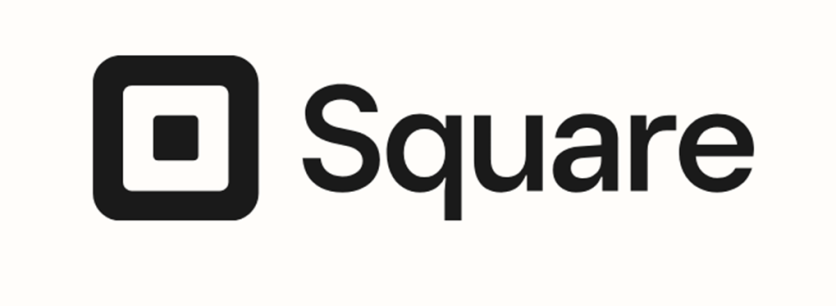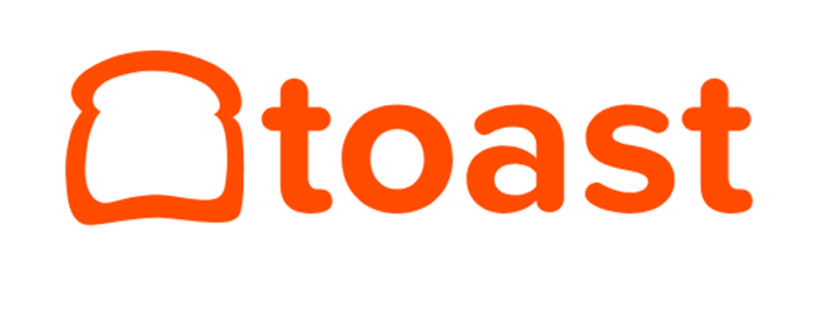Running a business in 2025 means having tools that keep things simple and efficient, and point-of-sale (POS) software does just that! These systems help you handle payments, manage inventory, and track customer data all in one place, making them a must-have for businesses big and small. The best POS software this year is user-friendly, reliable, and packed with features like mobile compatibility and detailed analytics to help you grow. Whether you own a coffee shop or a retail store, having the right POS software can save time and streamline your operations. Let's explore the top five options available!
What Is Point of Sale Software
Point-of-sale (POS) software is a digital system designed to help businesses process sales and manage transactions efficiently. It acts as the central hub where payments are completed, receipts are generated, and sales data is recorded. Modern POS software often includes features beyond handling payments, such as inventory management, customer tracking, employee management, and sales analytics. This makes it a powerful tool for streamlining operations and improving customer service.
POS software is highly recommended for businesses of all sizes, including retail stores, restaurants, cafes, salons, and even service-based businesses. Whether you're a small shop owner or managing a multi-location enterprise, POS software can help simplify day-to-day tasks, improve accuracy, and provide valuable insights to help grow your business.
Why Use a POS System?
Using a Point of Sale (POS) system can bring a lot of benefits to your business, making daily operations smoother and more efficient. Whether you run a small shop or a large enterprise, a POS system helps you stay organized and provide a better experience for your customers. Here are some key advantages:
- Streamlines Transactions: Speeds up checkout processes and ensures accuracy in handling payments.
- Inventory Management: Tracks stock levels in real-time, helping you avoid shortages or overstocking.
- Sales Reporting: Provides detailed insights into sales trends, popular products, and overall business performance.
- Customer Management: Stores customer information to enable loyalty programs, personalized marketing, and better service.
- Employee Monitoring: Tracks employee sales and schedules, making staff management more efficient.
- Mobile Compatibility: Many systems support mobile devices, allowing you to sell and manage on the go.
- Integrated Features: Combines various tools like accounting, marketing, and e-commerce for an all-in-one solution.
- Improved Accuracy: Reduces human errors in calculations and data entry, ensuring smooth operations.
- Better Customer Experience: Faster checkouts and personalized service enhance customer satisfaction.
- Scalability: Supports business growth with features that can adapt to increased demand or multiple locations.
Top 5 Best Point of Sale Software in 2025
Choosing the right point-of-sale (POS) software in 2025 can significantly improve the efficiency of your business. Perfect for retail, restaurants, and more, these top picks simplify transactions, manage inventory, and offer insights to help your business thrive. Here are the top five options to consider!
1. Square

Overview
Square is a leading business technology platform used by over four million sellers globally, including solo entrepreneurs and large enterprises. Launched in 2009, Square revolutionized payments with its mobile card reader, enabling businesses to accept payments anywhere. Today, Square offers a robust suite of tools, including hardware, software, and financial services, to help companies to thrive. Its operating system allows businesses to sell online and in-store, manage inventory, track sales, book appointments, and connect with customers. Square serves a wide range of industries, including retail, food and beverage, beauty salons, and fitness centers, across eight countries.
Outstanding Product Features:
The square stands out for its robust features:
- Point of Sale (POS): User-friendly systems for processing payments, tracking sales, and managing inventory.
- Payments: It accepts various payment methods, including cards, digital wallets, and Buy Now, Pay Later options.
- Customer Management: Tools like loyalty programs, customer directories, and marketing automation.
- Online Integration: Options for e-commerce, kiosks, and invoicing for seamless online and offline operations.
- Business Management: Payroll, staff management, and advanced access for large teams.
- Hardware: Devices like Square Register and Square Terminal for efficient in-store operations.
- Scalability: Flexible for small businesses and franchises alike, offering customizable tools and insights.
Pros and Cons:
Pros:
- All-in-one platform with tools for both small businesses and large enterprises.
- User-friendly interface and easy setup.
- Transparent pricing with no long-term contracts.
- Wide range of features, from payment processing to customer management.
- Reliable hardware options for various business needs.
Cons:
- Limited availability, currently serving eight countries.
- Advanced features may require additional costs.
- Customer support can sometimes be slow for complex issues.
2. Toast

Overview
Toast is a powerful, cloud-based restaurant management platform trusted by over 127,000 restaurants globally. Specializing in point-of-sale (POS) systems, Toast offers an all-in-one solution that helps businesses streamline operations, from payment processing to payroll and online ordering. With restaurant-grade hardware and a customizable suite of tools, Toast serves a wide range of dining establishments, including cafes, pizzerias, fine dining, and food trucks. The platform provides 24/7 customer support and reliable offline functionality, ensuring uninterrupted service. Its pricing plans cater to different business sizes, making it a flexible choice for any restaurant.
Outstanding Product Features:
Toast stands out for its robust features:
- Cloud-Based System: Accessible from anywhere, allowing restaurant owners to manage operations on the go.
- Offline Mode: Reliable functionality even without an internet connection.
- Restaurant-Grade Hardware: Built to endure daily challenges, such as spills, heat, and drops.
- Customizable Add-Ons: Options for payroll, inventory management, and online ordering.
- 200+ Integrations: Seamlessly connects with other tools for enhanced business management.
- Flexible Pricing: Tailored plans to suit different business types and sizes.
- 24/7 Support: Access to knowledgeable support staff at any time.
Pros and Cons:
Pros:
- Industry-specific solutions are designed to meet the unique needs of restaurants.
- Scalable for businesses of all sizes, from small cafes to large chains.
- Robust hardware built for everyday use in fast-paced environments.
- Comprehensive features that streamline operations from POS to payroll.
Cons:
- It may be more expensive compared to other general POS systems.
- Some features may require additional costs or integrations for full functionality.
3. Lightspeed

Overview
Lightspeed is a comprehensive point-of-sale (POS) and payments platform designed for businesses in various industries, including retail, hospitality, and golf. Trusted by over 165,000 locations globally, Lightspeed provides a fast, intuitive system that helps companies streamline operations, increase revenue, and improve customer experiences. The platform offers powerful tools such as inventory management, multichannel capabilities, real-time reporting, and fully integrated payments. With personalized 24/7 support, Lightspeed ensures businesses have everything they need to scale and succeed, no matter their size.
Outstanding Product Features:
Lightspeed offers a range of standout features designed to simplify operations, boost efficiency, and help businesses grow across multiple channels and locations.
- Multichannel Support: Manage operations across both physical and online channels with ease.
- Inventory Management: Track stock in real-time to prevent shortages and streamline ordering.
- Integrated Payments: Payments are processed seamlessly through the platform without third-party tools.
- Real-Time Reporting & Insights: Get data-driven insights and reports to optimize business strategies.
- Customizable for Multiple Locations: Perfect for businesses with multiple branches, offering centralized management.
- Personalized Support: Access expert onboarding and continuous support from industry professionals.
- Automation Tools: Save time on repetitive tasks and enhance operational efficiency.
Pros and Cons:
Pros:
- Fast and user-friendly platform suitable for various industries.
- Scalable solutions that grow with your business, supporting multiple locations.
- Robust reporting and insights to drive data-backed decisions.
- An integrated payment system simplifies transactions and reduces operational complexity.
Cons:
- Higher pricing compared to some other POS systems.
- It might be overkill for small businesses with limited needs.
- Some features may require extra training to maximize their potential.
4. Clover

Overview
Clover is a versatile POS system designed to simplify operations for small businesses, restaurants, and retail stores. In addition to accepting payments, It offers a range of solutions for managing inventory, employees, and customer loyalty programs. With hardware and software tailored to different business needs, Clover helps streamline day-to-day operations while enabling growth through flexible funding options like Clover Capital.
Outstanding Product Features:
Clover stands out with its wide array of features:
- Payment Solutions: Accept payments via countertop stations, handheld devices, virtual terminals, or online platforms.
- Business Management Tools: Manage inventory, track sales, and oversee employees with intuitive software and powerful apps.
- Customer Engagement: Boost sales with loyalty programs, gift cards, and marketing tools.
- Hardware Flexibility: To suit your needs, you can choose from devices like Clover Go, Mini, Flex, Station Duo, or specialized accessories.
- Clover Capital: Access fast funding options with payments tied to sales performance.
- Comprehensive App Marketplace: Explore apps for eCommerce, reservations, menu customization, and more.
Pros and Cons:
Pros:
- User-friendly interface suitable for various business types.
- Scalable solutions for small to large enterprises.
- Flexible funding through Clover Capital.
- Extensive app marketplace for customization.
- Robust customer engagement tools.
Cons:
- Monthly subscription fees can add up for smaller businesses.
- Limited offline functionality compared to competitors.
- Additional costs for premium apps and advanced features.
5. Elementary POS

Overview
Elementary POS is a versatile and user-friendly POS system for small businesses that prioritizes simplicity, speed, and affordability. Originating in the European Union, the system has expanded to over 100,000 installations across 17 countries, offering businesses a reliable tool to manage sales, inventory, and customer engagement. Designed for scalability, it caters to various industries, including retail and hospitality. Its affordable pricing structure, combined with innovative features like offline functionality and remote ordering capabilities, makes it a standout choice for businesses looking to streamline their operations and boost profitability.
Outstanding Product Features
Elementary POS offers a range of innovative features designed to enhance efficiency, simplify operations, and improve customer satisfaction for businesses of all sizes.
- Excel Integration: Elementary POS provides seamless Excel integration, simplifying inventory management and sales tracking for businesses of all sizes.
- Remote Ordering System: The Self-Service Ordering System allows customers to place orders conveniently via QR codes, reducing wait times and improving operational efficiency.
- Mobile Ordering System: The Mobile Ordering System for Staff allows team members to place orders directly from their devices, ensuring faster service and reducing errors.
- Loyalty Program: Built-in tools to reward customer loyalty helps businesses enhance engagement and retention.
- Offline Functionality: The platform operates seamlessly without internet connectivity, ensuring uninterrupted operations and data synchronization once reconnected.
- Back-office management: A web-based app provides real-time access to reports, sales data, and settings, giving businesses greater control over their operations.
Pros and Cons
Pros:
- Affordable pricing plans with free and premium options tailored to small businesses.
- Scalability and flexibility make it suitable for various industries.
- Robust offline functionality ensures reliability even during connectivity issues.
- Easy-to-use interface with strong Excel integration for effective data management.
- Enhances customer experience with QR code-based ordering and loyalty tools.
Cons:
- Limited hardware compatibility since it primarily operates on Android devices.
- Advanced features require premium subscription plans, which could add to costs for some businesses.
Conclusion
Choosing the right point-of-sale (POS) software can transform your business operations, providing efficiency, accuracy, and valuable insights to support growth. The top five POS systems in 2025—Square, Toast, Lightspeed, Clover, and Elementary POS—offer diverse features tailored to various industries and business sizes. Each platform brings unique strengths, from robust inventory management and seamless payment processing to innovative customer engagement tools and scalability.
By evaluating your business needs and priorities, you can select a POS system that enhances your operations and customer experience. Investing in the right solution ensures your business stays competitive and thrives in today's fast-paced, technology-driven market.





